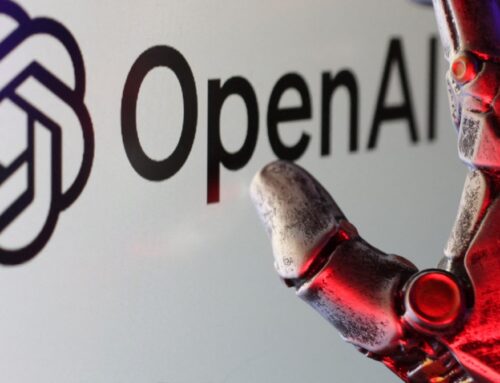Shipping companies to pay for carbon dioxide produced by vessels
April 11, 2025
Shipping companies will have to pay for the carbon dioxide produced by their vessels for the first time under new rules agreed by the world’s maritime watchdog.
The regulations agreed on Friday fall far short of the levy on CO2 that poor countries were hoping for, which would have funded their efforts to combat the climate crisis.
Saudi Arabia, Russia, United Arab Emirates and several other petrostates opposed the rules, but a majority of countries meeting at the International Maritime Organisation (IMO) in London approved a compromise deal that will mean all ships must pay for the CO2 they emit from 2028.
Vessels will be subject to a charge on their greenhouse gas emissions, increasing after a certain threshold, and will also be able to trade carbon credits with one another. This is intended to encourage them to adapt their ships to use low-CO2 fuels and to operate more efficiently, for instance by slowing down and thereby using less fuel, instead of the current wasteful practice of rushing to ports then idling nearby.
The measure is forecast to raise about $10bn (£7.6bn) a year, which is much lower than the $60bn a year that had been hoped for from a straightforward carbon levy. The revenues are also likely to be used within the shipping industry to help introduce cleaner technologies, rather than being diverted to vulnerable countries suffering the effects of extreme weather, as a levy would have been.
The emissions reductions likely to be achieved will also be modest, at least in the early years: about 8% by 2030, according to estimates from Umas, a commercial shipping consultancy. That falls far below the 20% reduction required by the IMO’s climate strategy set out in 2023.
Emma Fenton, a senior director at the campaign group Opportunity Green, said: “The IMO has made a historic decision, yet ultimately one that fails climate-vulnerable countries and falls short of both the ambition the climate crisis demands, and that member states committed to just two years ago.”
While shipowners might be tempted to opt for liquified natural gas as a cleaner alternative to the heavy, dirty bunker fuels commonly used, the rules are expected to tighten in the 2030s to penalise LNG more heavily.
Nevertheless, according to Tristan Smith, an associate professor in energy and transport at University College London, the rules could encourage the use of biofuels, which can be damaging to the environment.
He said: “[This is a] massive boost for biofuels, the likely least-cost compliance option for 85% of the fleet for the first five years. [That means] tens of millions of tonnes more demand.”
He said further negotiations on refining the carbon trading rules between now and their formal adoption in October would be “critical to limit the damage”.
Jonas Moberg, the chief executive of the Green Hydrogen Organisation, which advocates for hydrogen, said: “The IMO’s decision today sends an important signal to green fuels companies to go forward with projects. It is now clear that near-zero emissions fuels like green ammonia [a form of hydrogen fuel] will play an ever larger role in shipping in the years ahead.”
Many small island states abstained on the final vote, signalling their disappointment. Simon Kofe, the transport and energy minister for Tuvalu, said: “We came as climate-vulnerable countries with the greatest need and the clearest solution [in the form of a levy]. And what did we face? Weak alternatives from the world’s biggest economies – alternatives that won’t get us on a pathway to the 1.5C temperature limit [above pre-industrial levels]. They asked us to settle for less, while we are the ones losing the most.”
They vowed to fight on for stronger measures. The rules must now be refined and could be subject to substantial alteration before they can be formally adopted at an IMO meetingin October. Albon Ishoda, the special envoy for maritime decarbonisation for the Marshall Islands, said: “We are not done. We will be back. Alongside our friends from the Caribbean, the Pacific, Africa, Central America and the UK. Still standing. Still steering.”
The US, which had been present at the talks, stopped negotiating after sending a missive to other countries making clear that Donald Trump opposed the proposed carbon levy. It is not clear whether the US will accept the carbon-trading compromise agreed, but other countries are confident they can impose the rules in any case.
One developed country participant told the Guardian the compromise deal was probably the best that could have been hoped for. The EU had been strongly in favour of a levy, but before the talks began in earnest this week it changed its position to back carbon trading instead.
China, Brazil and several other emerging economies opposed the levy, but voted in favour of the carbon trading compromise.
Ralph Regenvanu, the environment minister for Vanuatu, said: “Let us be clear about who has abandoned 1.5C [the more stringent of the temperature goals in the 2015 Paris agreement]. Saudi Arabia, the US, and fossil fuel allies pushed down the numbers to an untenable level and blocked progress at every turn.
“These countries – and others – failed to support a set of measures that would have gotten the shipping industry on to a 1.5C pathway. And they turned away a proposal for a reliable source of revenue for those of us in dire need of finance to help with climate impacts.”
Search
RECENT PRESS RELEASES
Related Post



